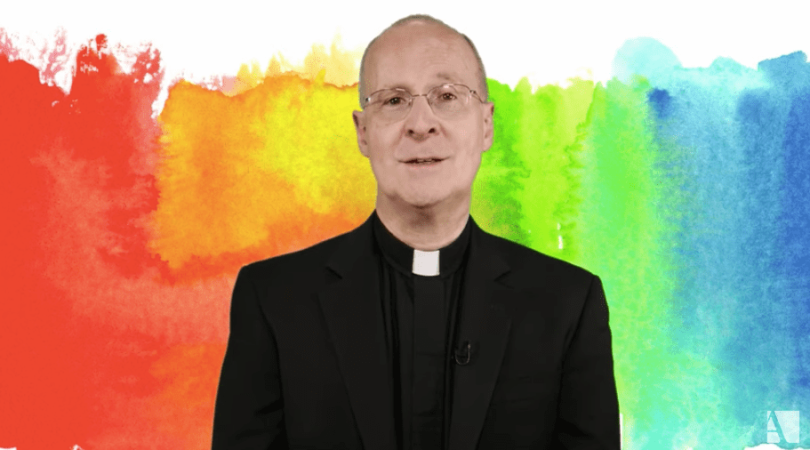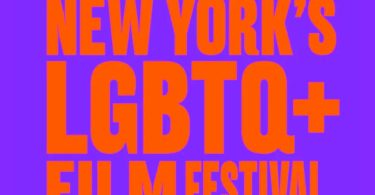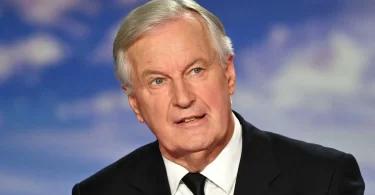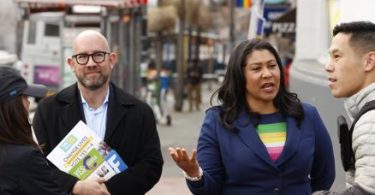Fr. James Martin, SJ
With the second General Assembly of the Synod on Synodality beginning next week, delegate Fr. James Martin, S.J., an LGBTQ+ advocate, offered reflections on last year’s assembly in America.
Martin noted that during last year’s assembly, he sought to listen, reflect, and respond to the delegates opposed to LGBTQ-positive approaches. He said he followed, “St. Ignatius Loyola’s ‘Presupposition,’ in which one tries to give another person the benefit of the doubt in order to understand their perspective.” Martin sought to engage in open and honest conversation, providing responses that may be helpful to all who are engaged in LGBTQ+ ministries and all who face similar LGBTQ-negative arguments.
Martin reports that he encountered five main areas of opposition to LGBTQ issues, and he shared his responses to each of these perspectives.
1. LGBTQ+ issues are an ideology
The most common response Martin heard to any mention of LGBTQ+ issues is that these topics are an “ideology,” or “a faulty belief system imposed on unsuspecting people, often youth.” Many delegates were reluctant to even use the acronym LGBTQ, viewing it as “a reflection of a dangerous ideology.”
In response, Martin asserts:
“…psychiatrists, psychologists, physicians, biologists, social scientists, and, most of all, L.G.B.T.Q. people themselves will tell you that they are not responding to ideas as much as to deeply felt experiences. For gays, lesbians and bisexuals, this is the way they feel that they have been created, not the result of an intellectual assent. And for transgender people, as Sister Luisa Derouen, O.P., often points out, this is part of their journey, not a response to any ideology.”
2. It is a form of neocolonialism
Furthermore, many delegates argue that this “ideology” is introduced and imposed by colonial powers. Some argue that the concept of being gay didn’t exist in their culture until the arrival of Western colonizers. Others expressed anger that they believe foreign aid is sometimes tied to stipulations that governments agree to accepting certain LGBTQ+ rights–namely, protection of LGBTQ+ people from harassment, incarceration, and execution.
In response, Martin turns to scholars who have pointed out that “homosexuality has been part of many ancient, non-Western cultures, predating the era of colonialism.” Furthermore, he says, “the deeper colonialist influence is the history of ‘anti-sodomy’ laws, particularly those enforced by the British Empire, which have left a lasting legacy of homophobia.”
3. It is a Western preoccupation
Many delegates held that the existence of LGBTQ+ people in their diocese is simply not an “issue.” It is never discussed, or is too incredibly taboo to discuss. Martin observe, “some Catholic leaders, seeing few people discussing these topics in their countries, label it not only a Western issue, but, more specifically, a Western preoccupation.”
In contrast to the idea that it is simply “not an issue,” Martin points to the rising number of LGBTQ+ people fleeing from violence and persecution:
“In dozens of countries you can be jailed for either engaging in same-sex relations or advocating for L.G.B.T.Q. rights. In seven countries you can be executed. Cases of L.G.B.T.Q. people fleeing their countries out of fear are rampant; sometimes that persecution follows them into refugee camps. For these people, and therefore for their countries and the church, it is very much an issue.”
4. Supporting LGBTQ+ people means opposing church teachings
The idea that acknowledging even the mere existence of LGBTQ+ people automatically means opposition to church teaching routinely shuts down opportunities for conversation and encounter, he noted. In response to this perspective, Martin wrote:
“In these conversations, I often invite people to think about the young person, perhaps 15 or 16, who is not in any sort of relationship, and not planning on marrying any time soon, but who feels marginalized from his or her church. Or the lesbian who is subject to the horrors of “corrective rape.” Or the gay man suffering in a refugee camp or jail. What church teaching are these people opposing? Listening to the stories of L.G.B.T.Q. people does not automatically mean casting out church teaching.”
5. LGBTQ+ people hate the Church
Finally, for some delegates, their main experience with LGBTQ+ people is hearing anger toward the church, contributing to an idea that all LGBTQ+ people must hate or be opposed to the church. Martin countered this idea with:
“One response is to invite people to understand that many L.G.B.T.Q. people (many of whom are not Catholic) are responding to what they see as homophobic comments from church leaders, and also to remember that these protesters do not represent the vast majority of L.G.B.T.Q. Catholics who simply want to know that God loves them, that Jesus is with them, that the Holy Spirit enriches their lives and that the church is their home.”
Ultimately, when encountering those who oppose LGBTQ+ issues both among the Synod delegates, as well as in all areas of ministry, Martin’s advice is the same advice he gives to encourage encounter with and acceptance of LGBTQ+ people: “meet them, listen to them and come to know them as beloved children of God.”
—Phoebe Carstens (they/them), New Ways Ministry, September 27, 2024







